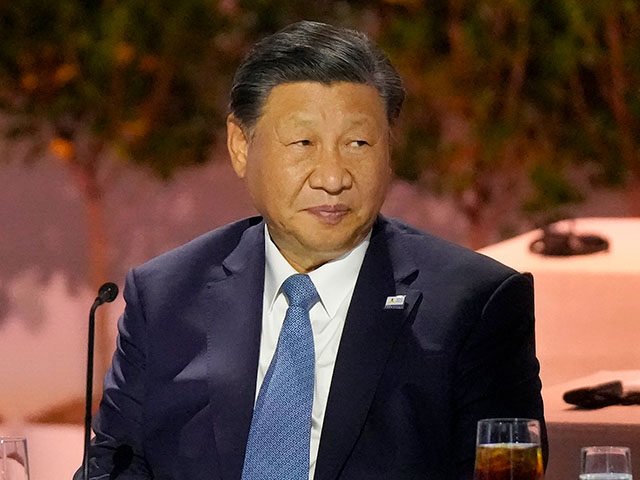China’s Ministry of Commerce released data last week that showed foreign direct investment (FDI) declining for the 12th month in a row in May, slipping by 28.2 percent year-on-year. FDI hit a 30-year-low at the end of 2023.
Voice of America News (VOA) on Tuesday quoted analysts who said declining foreign investment was a result of “political risks” – i.e. the risk of annoying the Chinese Communist Party, which tends to lash out at anyone who annoys it – and “China’s struggle to recover stable economic growth since the Covid pandemic.”
China’s gross domestic product (GDP) simply has not recovered as promised since the end of dictator Xi Jinping’s manic coronavirus lockdowns, not even using China’s often questionable economic reports. GDP growth bottomed out at three percent in 2022 and has only improved a little since then. The World Bank is projecting four-percent growth in the next two years, well below China’s pre-pandemic annual growth of six to seven percent.
Investors are reportedly still nervous about the Chinese Communist Party’s tendency to launch sudden crackdowns on both domestic and foreign industries.
One incident with an especially long shadow was China’s raid on a U.S. due diligence firm, the Mintz Group, which resulted in five of the company’s Chinese employees being arrested. Beijing seems to have dramatically underestimated how nervous this raid made foreign executives and how long they would remain nervous for.
VOA quoted analysts who said the international business community is well aware of U.S. intelligence estimates that say the Communist regime is stepping up its efforts to steal intellectual property and is expanding surveillance of both its own subjects and foreign citizens.
As University of Southern California School of Business adjunct professor Paul Orlando pointed out, investing in China is very difficult unless one lives there, and living there is becoming steadily more difficult. New regulations went into effect this week that give Chinese officials broad latitude to seize smartphones and personal computers from foreign visitors, which is a worrisome prospect for jet-setting investors.
Another factor is “de-risking,” the desire of Western companies to become less dependent on Chinese supply chains after the coronavirus pandemic. Chinese officials love to dismiss de-risking as a minor annoyance, or even proclaim that no major Western companies are doing it at all. This feigned indifference is occasionally mixed with ominous threats that the Communist regime is ready to punish foreign companies that move their supply chains out of China.
De-risking puts downward pressure on direct foreign investment, just as routing all those supply chains through China inspired a great deal of associated investments.
Tensions could rise even beyond de-risking levels if the U.S. government follows through on threats to increase certain tariffs on China’s unfairly subsidized products, such as electric vehicles.
The Chinese Commerce Ministry said last week that the new FDI numbers were nothing to worry about, the apparent 12-month streak of declines was due to a “high comparison base” from the previous year, and the regime considers foreign investment to be “generally stable.”

COMMENTS
Please let us know if you're having issues with commenting.